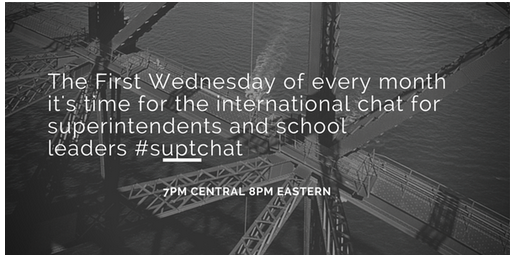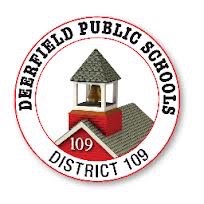“Waste no more time arguing about what a good man should be. Be one.”
– Marcus Aurelius
From time to time people ask why I strongly and frequently advocate for the leader’s use of social media so often. Others inquire as to why I share so much about my district and professional views publicly on Twitter, via this blog, and in other communication media. Still others ask how does this use of social media tools improve learning for students and staff.
students and staff.
For the first blog post of 2017 I decided to concentrate on the “why” – the why I blog; this year I plan to write about the why I lead, the why I advocate for all children, the why I do what I do and I believe what I do.
I believe this will be an amazing year!
To start with the “why” I blog, I review the Welcome Section of this blog:
Exc
erpt:
Welcome to the blog for the superintendent of the Deerfield Public Schools.
Communication is an evolving process reflective of the needs of the community, and as such, this blog and the district’s methods of communication – pushing and pulling – speaking and listening – are likely going to change and evolve as a result of needs and actions of the district and the superintendent’s office. I welcome and encourage your comments and input!I am grateful to be a part of the educational system and the community! I am grateful to work with an outstanding group of educators, community members, parents, students, etc. I am grateful to learn and grow and support the learning and growth of others as the chief educational leader in the community!
Continuing on the subject of why I blog I consider other social media tools that support my growth as a leader. First I look to blogging and next I look to #suptchat, the international monthly Twitter chat I co-facilitate with Nick Polyak. From #suptchat I learn many leadership tips and ideas and I gain access to resources from a large PLN (personal learning network).
In  addition, from other social media sources and through personal professional relationships, I continue to learn so much from contemporary leaders, like Chris Kennedy in West Vancouver, British Columbia, Joe Sanfelippo in Fall Creek, WI (#gocrickets), Jeff Zoul right here in Deerfield, and so many other leaders and educators featured in and through AASA, NASSP, NAESP, and many other professional communications.
addition, from other social media sources and through personal professional relationships, I continue to learn so much from contemporary leaders, like Chris Kennedy in West Vancouver, British Columbia, Joe Sanfelippo in Fall Creek, WI (#gocrickets), Jeff Zoul right here in Deerfield, and so many other leaders and educators featured in and through AASA, NASSP, NAESP, and many other professional communications.
In addition, the social media connections and relationships are enhanced and humanized through conferences and workshops and from books and literature. I find great value in reading currently published and recently published books from members of my PLN (Sanfelippo, Zoul, Gustafson, Creasman, Burgess, and so many more!)
One of the ways I learn evidence based ways to support leaders in my organization is through reflection, review, study, connection, and learning from others through various connection modes. One of the ways I share reflection is through blogging!
From http://blogbasics.com/what-is-a-blog/ they share a definition of what is a blog:
So What Is a Blog?
Let’s begin with some definitions. A bit dry, we realize, but this is a necessary evil. First we’ll define the word this whole site is based around – blog.
A blog is a frequently updated online personal journal or diary. It is a place to express yourself to the world. A place to share your thoughts and your passions. Really, it’s anything you want it to be. For our purposes we’ll say that a blog is your own website that you are going to update on an ongoing basis. Blog is a short form for the word weblog and the two words are used interchangeably.
With this first 2017 blog post I’m also sharing my thoughts on what constitutes effective blogging from an article published this month in the January 2017 edition of the AASA Magazine.

Social Media
What Constitutes Effective Blogging?
By Michael Lubelfeld/School Administrator, January 2017
A superintendent plays many roles and wears many hats — chief educational officer, chief spokesperson and chief communicator to name a few essential and high-profile roles.
Social media as a communication medium has proven to be an effective tool for school leaders. In particular, blogging is an effective mode of communication, and something I have been doing since 2010 when I first became a superintendent in suburban Chicago.
Like other forms of social media, blogging allows for a blending or integration of professional and personal messaging. The district website and official e-mail systems are 100 percent work-related and represent the official statements and positions of the school district. A blog allows for the representation of the district while enabling the superintendent to be a person, a professional with human emotions and interests who can share using her or his own voice.
Posting Periodically
An effective superintendent blog is updated at least monthly. Blog posts should have links, photos and videos relating to the topic being discussed while showcasing learning and leading. Photos and videos showing the schools and communities tend to have a greater viewing impact than generic, nonrelated imagery.
The blog itself should be visually attractive and easy to locate and read with an ease for sharing comments. I follow several blogs because I find the communication timely, relevant and valuable, and I aim to improve my own craft as a blogger by learning from others. The blog should have compelling and well-written content that is fitting for the local audience as well as the profession. It should be a blend and balance of personal reflection and values while serving as a communication arm of the district.
Since the start of the school year, I’ve used my blog to comment critically on the failure of our state to adequately finance public schooling and to reach back to my 8th-grade teaching days to share a homemade vehicle for improving teacher-parent communication in the pre-electronic mail era.
my 8th-grade teaching days to share a homemade vehicle for improving teacher-parent communication in the pre-electronic mail era.
I reflected in another recent post on a life-changing experience participating in a Lifetouch Memory Mission to the Dominican Republic. Several of my narratives attracted comments of followers.
Two superintendent blogs I follow and recommend are the Culture of Yes (https://cultureofyes.ca) by Chris Kennedy, superintendent in West Vancouver, British Columbia, and the Superintendent’s Corner (https://superintendent.hcpss.org) by Renee Foose, superintendent of the Howard County, Md., schools.
In the Culture of Yes, the reader will find timely and appealing posts relating to education, leadership and highlights of the West Vancouver district. I enjoy the 500- to 1,000-word posts that are easy to read, force me to think and allow me to apply concepts to my own practices as a leader. Foose’s blog is visually unique in that the posts appear as
blocks on a page with images. This distinctive look allows the reader to consider the intended message before reading the posts. Foose generally writes shorter posts than Kennedy and hers typically offer photos or other media capturing students and community.
A Public Journal
I blog out of a desire to share, from a balcony perspective when appropriate, and from the “dance floor” when apropos for describing what is happening in the 3,000-student system I lead. I believe it is useful for the superintendent to share publicly his or her in-depth educational philosophies. Reflection is a valuable skill for all, and blogging serves as a public journal for public reflection.
My social media use enables me to share deeper connections. Because social media drops barriers and boundaries, I am able to learn and grow and communicate with leaders all over the world. In addition, the stories of my schools are shared widely thanks to the ease with which one can connect using social media. My blog shows how professional learning of the superintendent relates to best practices in school leadership, instruction and innovation. The blog is another tool for communication in the modern school leader’s bag of tricks.
Michael Lubelfeld is superintendent of Deerfield Public Schools in Deerfield, Ill. E-mail: mlubelfeld@dps109.org. Twitter: @mikelubelfeld. He blogs at https://dps109supt.edublogs.org.






